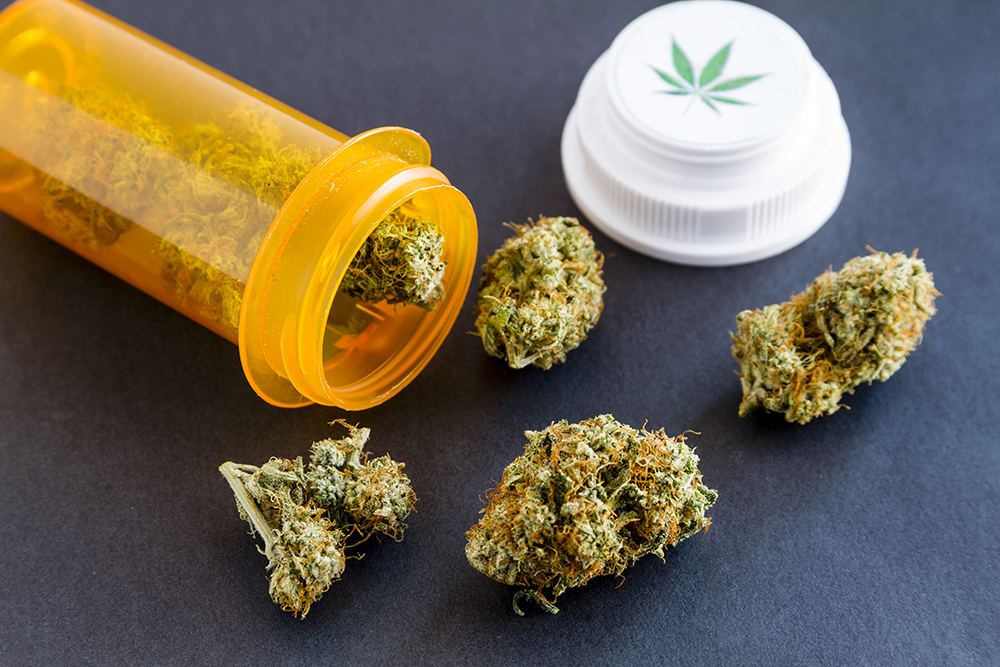Shedding Light on What Medical Cannabis Can Treat: a Comprehensive Evaluation of Its Therapeutic Residences
In current years, there has been an expanding passion in the restorative potential of medical marijuana. While unscientific proof abounds, a detailed assessment of the clinical data pertaining to the effectiveness of medical cannabis in dealing with these problems is required.
Persistent Pain Management
Chronic discomfort administration remains a vital element of healthcare, necessitating an extensive method for efficient treatment. Recently, medical marijuana has become a prospective therapeutic alternative for people experiencing from chronic pain problems. The endocannabinoid system, which plays an essential duty suffering inflection, has been targeted by cannabis-based therapies to ease signs and symptoms and boost quality of life for individuals.

Additionally, clinical cannabis supplies an appealing choice for individuals who experience unbearable side impacts from typical pain drugs. Its capacity to address discomfort with a different system makes it an important addition to the toolbox of treatments offered for chronic discomfort administration.
Epilepsy Therapy Prospective
Clinical cannabis has revealed encouraging possibility in the treatment of epilepsy, using a novel healing strategy for handling seizures in individuals. Epilepsy is a neurological problem characterized by persistent seizures, affecting people of any ages. Standard therapies for epilepsy consist of antiepileptic medicines, but these drugs may not be efficient for all clients and can have considerable adverse effects.
Research on making use of clinical cannabis for epilepsy has actually exposed encouraging results. Cannabidiol (CBD), a non-psychoactive substance located in cannabis, has been especially highlighted for its anticonvulsant properties. Researches have actually revealed that CBD can decrease the regularity and extent of seizures in clients with treatment-resistant types of epilepsy, such as Dravet disorder and Lennox-Gastaut disorder.
In Addition, the FDA has authorized a CBD-based drug, Epidiolex, for the therapy of seizures connected with these extreme kinds of epilepsy. This landmark emphasizes the growing acknowledgment of clinical cannabis as an important healing alternative for handling epilepsy and gives hope for individuals who have not reacted well to traditional treatments.
Queasiness Alleviation Benefits
The alleviation of queasiness via using cannabis has been progressively recognized for its restorative advantages in numerous medical conditions. Nausea and vomiting are common signs and symptoms experienced by clients undergoing chemotherapy, those with food poisonings, and individuals with persistent discomfort problems. Clinical cannabis, with its active substances such as THC and CBD, has actually shown assurance in giving remedy for nausea.

In addition, medical marijuana provides a natural option for people who do not respond well to conventional anti-nausea medications or that experience severe negative effects from these drugs. Patients undergoing chemotherapy, in particular, have reported considerable improvements in their top quality of life when making use of cannabis to manage nausea bryce cleary or vomiting. As research in this location remains to grow, clinical marijuana is progressively being thought about as a valuable alternative for nausea alleviation in different medical settings.
Anxiety Decrease Results
Researches have actually demonstrated the capacity of marijuana in decreasing stress and anxiety signs through its communication with the endocannabinoid system. The endocannabinoid system plays an important function in regulating emotions, including anxiousness, by maintaining homeostasis in the body. Cannabinoids in marijuana, such as THC and CBD, interact with the endocannabinoid receptors in the mind, especially the CB1 and CB2 receptors, to regulate anxiety-related feedbacks.

Individuals with conditions like generalised stress and anxiety condition (GAD), social stress and anxiety disorder, and post-traumatic anxiety disorder (PTSD) may profit from the anxiolytic properties of marijuana (Medical Marijuana Dispensary near me). Nevertheless, additional research is required to determine optimum dosages, distribution approaches, and lasting results on stress and anxiety administration.
Possible for Inflammation Control
With its well-known anti-inflammatory residential properties, marijuana has actually shown pledge in potentially managing swelling within the body. Inflammation is the body's natural feedback to injury or infection, however when it comes to be chronic, it can add to various diseases such as arthritis, inflammatory digestive tract disease, and even heart disease. Study suggests that the cannabinoids found in cannabis, such as THC and CBD, can aid lower and manage the immune reaction inflammation.
Studies have shown that cannabis can connect with the endocannabinoid system, which plays a crucial role in managing inflammation. By targeting the cannabinoid receptors, cannabis substances can regulate the immune response, bring about a reduction in swelling degrees. This makes marijuana a prospective candidate for taking care of inflammatory conditions where typical treatments have actually failed.
Additionally, cannabis-derived items like CBD oil have actually gained popularity for their anti-inflammatory buildings, with numerous people utilizing them as a natural remedy for problems connected with inflammation. While even more research is required to fully recognize the mechanisms behind cannabis's anti-inflammatory impacts, present findings show appealing results for the prospective use of clinical marijuana in managing swelling.
Conclusion
In verdict, medical marijuana has actually revealed promising healing properties in handling persistent pain, dealing with epilepsy, eliminating nausea, minimizing anxiety, and managing swelling. Its possible benefits in different clinical problems highlight the importance of additional study and exploration into its medical usage. The proof suggests that medical marijuana can be an important option therapy option for clients looking for remedy for a variety of signs and symptoms and conditions.
In current years, clinical cannabis has emerged as a possible healing option for individuals experiencing from persistent walk in medical near me discomfort conditions.Medical cannabis statcare near me has actually revealed encouraging possibility in the therapy of epilepsy, using an unique healing approach for managing seizures in patients. As research in this area continues to grow, medical cannabis is increasingly being thought about as a beneficial alternative for nausea or vomiting alleviation in numerous clinical setups.
In verdict, clinical marijuana has shown appealing restorative residential properties in taking care of persistent discomfort, treating epilepsy, eliminating queasiness, lowering stress and anxiety, and controlling swelling. The proof recommends that medical cannabis could be a valuable choice therapy choice for clients seeking alleviation from a variety of signs and conditions.